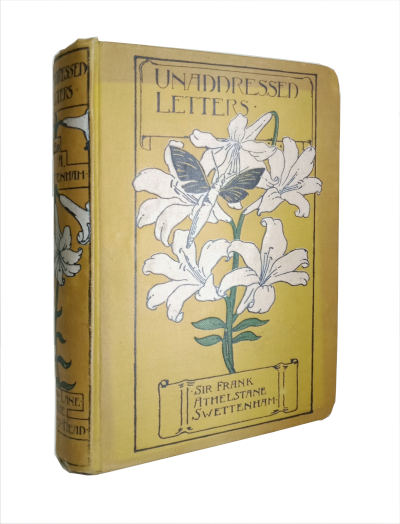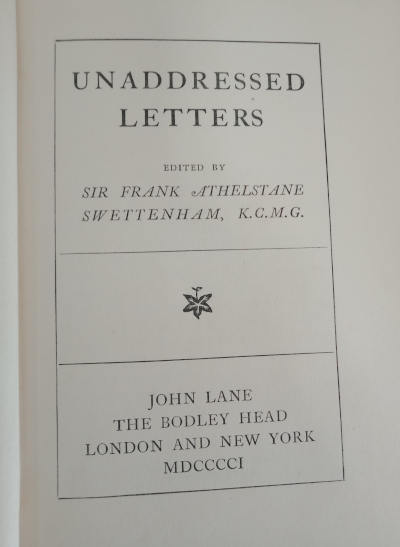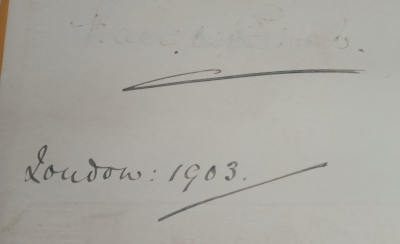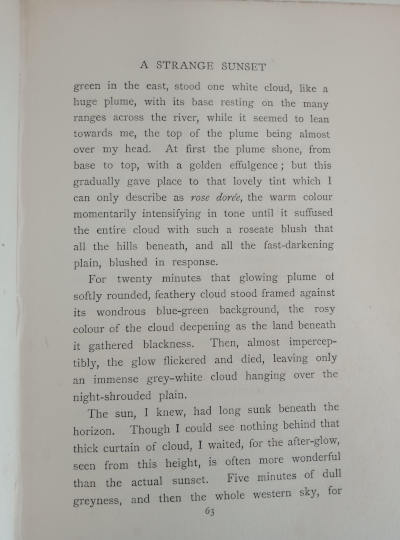Swettenham’s private “letters” (basically reflections and musings) about life in Malaya and Burma and other places. Some fascinating insights into life in this part of the world in that period.
Excerpt:
Whilst the Malays are still in my mind, it may interest you to know that they have a somewhat original form of verse in four-line stanzas, each stanza usually complete in itself, the second and fourth lines rhyming. The last two lines convey the sense, while the first two are only introduced to get the rhythm, and often mean nothing at all.
Here are some specimens which may give you an idea of these pantun, as they are called, though in translating them I have made no attempt to give the necessary “jingle.”
“A climbing bean will gain the roof;
The red hibiscus has no scent.
All eyes can see a house on fire;
No smoke the burning heart betrays.
Hark! the flutter of the death’s-head moth;
It flies behind the headman’s house.
Before the Almighty created Adam,
Our destinies were already united.
This is the twenty-first night of the moon,
The night when women die in child-birth.
I am but as a captive song-bird,
A captive bird in the hand of the fowler.
If you must travel far up river,
Search for me in every village;
If you must die, while I yet linger,
Wait for me at the Gate of Heaven.”
Review:
No one could doubt that this is the work of a clever man of highly cultivated, thoughtful, and subtle mind, and gifted with an artistic eye and skilful pen. Not the least clever part of the book is the preface, in which the writer lays before the reader the literary fiction which provides him with a pretext for throwing his thoughts into the form of letters.
It is one particularly suitabie to his purpose, because he can thus express his ideas in an easy, flowing, discursive style, without being cramped by the regular logical arrangement of a set essay. It gives excuse for the allusive, sometimes elusive, way of writing in which Mr. Swettenham delights, because the imaginary correspondent is presumed to supplement the half-expressed meanings.
The supposed writer is described as just a man of the character and position that would account for the style of the letters,—” by trade, a diplomatist ; by inclination, a sportsman with literary and artistic tastes ; by force of circumstances he was a student of many characters, and in some sense a cynic ;” a traveller in many parts of the globe, and one who, above all, was fascinated by the glamour of the East. Given these character- istics, the letters explain themselves. They are mainly of four kinds.
There are those purely descriptive of Nature, in which the author writes like an artist, and a highly poetical one, revelling most of all in the striking forms and glowing colours of Oriental scenes. His description of the sky in “A Strange Sunset” would be hard to beat.
There are short stories skilfully told with a touch here and a stroke there, like the clever sketch of a good draughtsman. They are for the most part sad and often cynical. One of the cleverest is “In Exile,” a tale in which the whole situation of Nature and human nature at Phatmah in Burmah, is admirably touched in.
In other letters the common problems of ordinary life are discussed with good sense and humour, such as those on “Daughters and Despotism,” “Change and Decay,” “Her Fiancé,” “Coincidences,” “On the Repre- hensible Habit of Making Comparisons.”
But the subject on which the author writes con amore is the eternal question of love and lovers. He seems to be a master in the pathology of the affections. He is a mystic in love. Delicate shades of feeling, subtle distinctions, pains and raptures, hopes and fears, are described with a fineness of touch and a handling so elaborate that the ordinary Britisher might well rub his forehead and wonder what on earth the fellow was driving at. The cobwebs are, indeed, rather too fine-spun for the ordinary reader, but Mr. Swettenham may reply that he does not write for him.
What others would object to is the predominant tone of melancholy that would drive most readers, on laying down the book, to take up one of a cheerful and healthy kind by way of antidote. The effect of the letters is similar to that of some of Chopin’s music. It is not merely of sadness, but of sadness without hope.
– A review from The Spectator, 5 NOVEMBER 1898, Page 29






